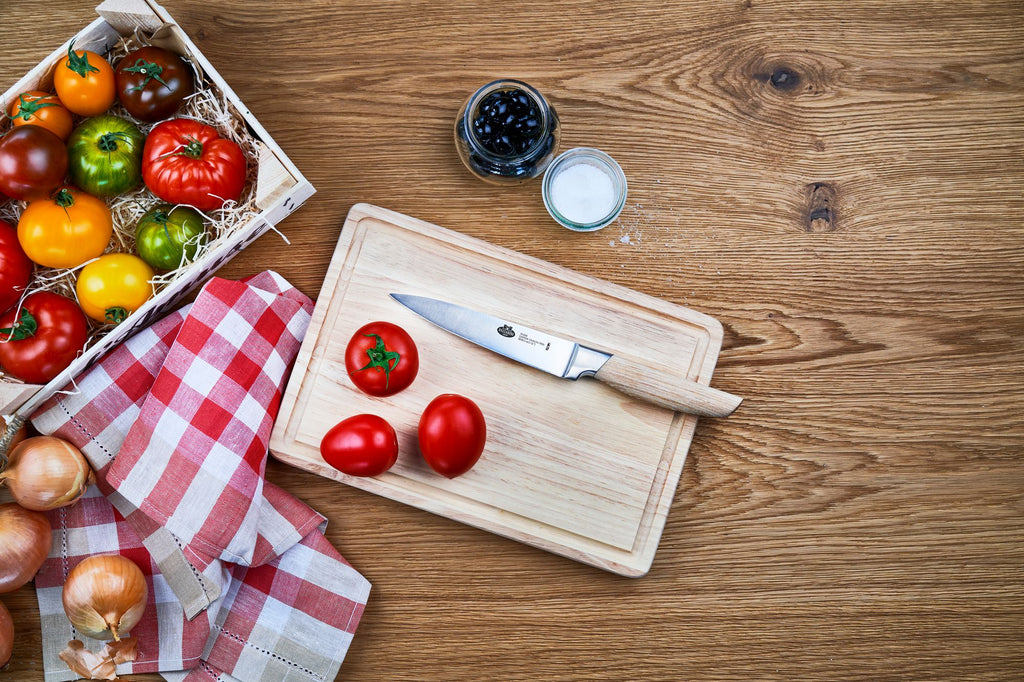When it comes to choosing the right tools for your kitchen, German knife sets for beginners can be a stellar choice. Known for their precision, durability, and iconic craftsmanship, these knives are perfect for both home cooks and kitchen professionals. In this article, we will delve into the world of German knives, exploring what makes them a top choice and how they can benefit those just starting out in the culinary world.

Why Choose German Knives?
German knives are revered for their robust construction and versatile use. The steel used in these knives is often of high quality, offering resilience and longevity. For professionals in the kitchen, a reliable knife is not just a tool, but an extension of their skills. German knives provide this reliability with their full tang construction and balanced weight, making them a favorite among chefs worldwide.
The Craftsmanship Behind German Knives
The tradition of German knife making is deeply rooted in history, with cities like Solingen being renowned for producing high-quality blades. This craftsmanship ensures that each knife is not only a work of art but also a functional piece of kitchen equipment. The meticulous attention to detail in the forging and tempering processes results in knives that remain sharp and effective for longer periods.
What to Look for in a German Knife Set
For those new to the world of culinary arts, selecting the right knife set can be daunting. Here are some key features to consider:
Blade Material and Design
German knives typically feature high-carbon stainless steel blades. This material offers a perfect balance between hardness and flexibility, allowing for easy maintenance and sharpening. The design often includes a bolster, which helps in providing balance and safety during use.
Handle Comfort and Safety
The handle design is crucial as it affects the grip and overall comfort during use. Look for handles that are ergonomically designed and made from durable materials. This ensures that even during prolonged use, the knife remains comfortable and safe to handle.
Set Variety
A good beginner's knife set should include a variety of knives to cover different culinary needs. Essential knives in a set may include a chef's knife, paring knife, and bread knife. This variety allows for versatility in the kitchen, enabling you to tackle any recipe with confidence.
Maintaining Your German Knife Set
Proper maintenance is key to ensuring the longevity and performance of your knife set. Regular honing and occasional sharpening are necessary to keep the blades in top condition. Furthermore, proper cleaning and storage will prevent damage and rust, maintaining the knife's integrity over time. For more detailed care tips, you can refer to this knife care guide.
German Knives vs. Japanese Knives: What's the Difference?
While both German and Japanese knives are popular among chefs, they cater to different needs and preferences. German knives are known for their durability and versatility, while Japanese knives are often lighter and more precise. Understanding these differences can help in choosing the right knife for your cooking style. For a deeper comparison, check out this German vs. Japanese knives guide.

Conclusion: Embrace the Precision of German Knives
Incorporating a German knife set into your kitchen arsenal can elevate your culinary skills and experience. These knives offer a blend of tradition, precision, and durability that few other tools can match. Whether you are a seasoned chef or a beginner, investing in German knives is a step towards mastering the art of cooking.
FAQs
Q: What makes German knives suitable for beginners?
A: German knives are known for their balance and durability, making them easy to handle and maintain, which is ideal for beginners.
Q: How often should I sharpen my German knife set?
A: Regular honing after every few uses is recommended, with sharpening needed every few months depending on usage.
Q: Are German knife sets more expensive than others?
A: While they can be pricier, the investment is justified by their long-lasting performance and quality.


























